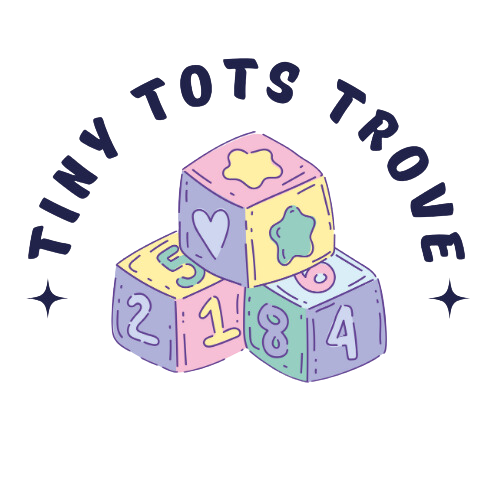
Learning to talk and developing language might seem second nature for children, but did you know that a young child actually needs to master several skills first before being able to communicate effectively?
One of the most important skills to facilitate this is phonological skills. Phonological skills involve the ability to recognise and use different sounds when speaking. This includes an awareness of the sounds that are heard, the identification of what constitutes a syllable, and the recognition of rhymes. These collectively play a critical role in early language development, consequently influencing a child’s ability to learn and expand their vocabulary, develop reading and writing skills, and thereby communicate effectively with those around them.
Here are some ways to help build these skills!
S - Sound Awareness
O - (Oral) Language Development
U - Understanding Written Language (Literacy Skills)
N - Networking with Others
D - Developing Cognitive Skills
1. Sound Awareness
Children with strong sound awareness are able to quickly identify phonemes, which are the smallest units of sound that distinguish meaning in a language. An activity to help develop better phonemic awareness is the use of rhymes. Reading rhymes (such as nursery rhymes or rhyming stories) can help children identify patterns in sounds through meaningful repetition. These nursery rhymes and stories often include interesting pictures and ideas, which help make the learning process enjoyable. Rhymes also encourage a child to listen closely and discern more effectively, as the words often sound very similar.
Having a good foundation in sound awareness leads to better listening skills through more efficient and effective processing of auditory information. This, in turn, allows a child to better comprehend spoken language.
2. (Oral) Language Development (Expressive Language)
Strong phonological skills are a key indicator of developing expressive language, which is the ability to express thoughts and ideas verbally.
Children with good phonological skills can decode new words more easily. This important skill means they are better equipped to break down unfamiliar words into manageable parts, allowing them to read the words and attach meaning to them.
Research also shows that children with strong phonological awareness are more likely to produce clearer speech, leading to better interactions with peers and adults (Gillon, 2004). Being able to communicate effectively with others ensures that children continue to gain confidence and competence socially as they grow.
3. Understanding Written Language (Literacy Skills)
Similar to expressive language, the ability to decode words and manipulate their components facilitates a child’s ability to read.
A strong grasp of the relationship between sounds and their corresponding letters (phonological awareness) supports spelling and helps explain why words sound the way they do. When a child can hear and manipulate sounds in different combinations, they become better equipped to spell correctly during dictation.
Naturally, strong phonological skills also enhance reading comprehension and fluency (Lonigan et al., 2000). When children can decode words quickly, they can focus on understanding the meaning of what they are reading.
4. Networking with Others (Social Communication)
As mentioned earlier, good phonological skills enable a child to speak clearly and convey their thoughts more effectively. These skills aid the development of conversational abilities, facilitating social interactions. Additionally, strong social and expressive language skills can help a child navigate the often-daunting world of social dynamics more smoothly.
5. Developing Cognitive Skills
Good phonological abilities also offer numerous cognitive benefits.
Phonological skills, for example, help improve and build auditory memory. The ability to remember sequences of sounds, words, and even stories is essential for overall learning.
Tasks related to listening and reading, such as phonological awareness activities, require focus and reasoning, which further enhance a child’s cognitive abilities.
The Role of Speech Therapy in Enhancing Phonological Skills
Assessment and Diagnosis
Speech and Language Therapists (SLTs) assess and identify potential challenges and difficulties related to a child’s phonological skills and ability to produce specific speech sounds.
Intervention
If difficulties are identified, SLTs prioritise specific therapy goals and targets to address the individual needs of the child.
An SLT might work on the following in therapy:
- Phonological awareness activities: Helping children recognise and manipulate sounds in words
- Articulation therapy: Teaching the correct pronunciation of specific speech sounds to express themselves clearly
- Expanding vocabulary
- Social communication: Developing skills such as turn-taking, listening, and exchanging ideas in conversations
- Parent education: Providing strategies and activities that can be practised regularly at home. Close collaboration with families significantly enhances therapy effectiveness.
Phonological skills have an immense impact on various areas of development for children, extending beyond the physical act of speaking. Mastering this fundamental skill is key to helping a child progress holistically.
If your child is experiencing difficulties with phonological skills or speech, feel free to reach out to us at Dinosaur Speech Therapy! We utilise a fun, play-based approach in our therapy and specialise in the diagnosis and treatment of conditions such as Autism Spectrum Disorder (ASD), Dyslexia, speech delay, and language delay, among others. We also offer half-day and full-day Early Intervention and School Readiness Programmes filled with fun and learning. Get in touch with us for a free consultation or to learn more!
References
- Gillon, G. T. (2004). Phonological Awareness: From Research to Practice. Guilford Press.
- Lonigan, C. J., et al. (2000). The role of phonological sensitivity in the development of literacy. Learning Disabilities Research & Practice, 15(2), 87–99.
By Ong Yu Jing and Bernard Tan
Yu Jing and Bernard are Speech and Language Therapists from Dinosaur Speech Therapy, one of Singapore’s leading early intervention centres specialising in the diagnosis and treatment of conditions such as Autism Spectrum Disorder (ASD), Dyslexia, speech delay, and language delay. Dinosaur School (part of the Dinosaur Therapy Group) also offers half-day and full-day Early Intervention and School Readiness Programmes filled with fun and learning.
For more information on Dinosaur Speech Therapy’s services, visit https://dinosaurspeechtherapy.sg.
For more information on Dinosaur School’s programmes, visit https://www.dinosaurspeechtherapy.sg/dinosaur-school.



